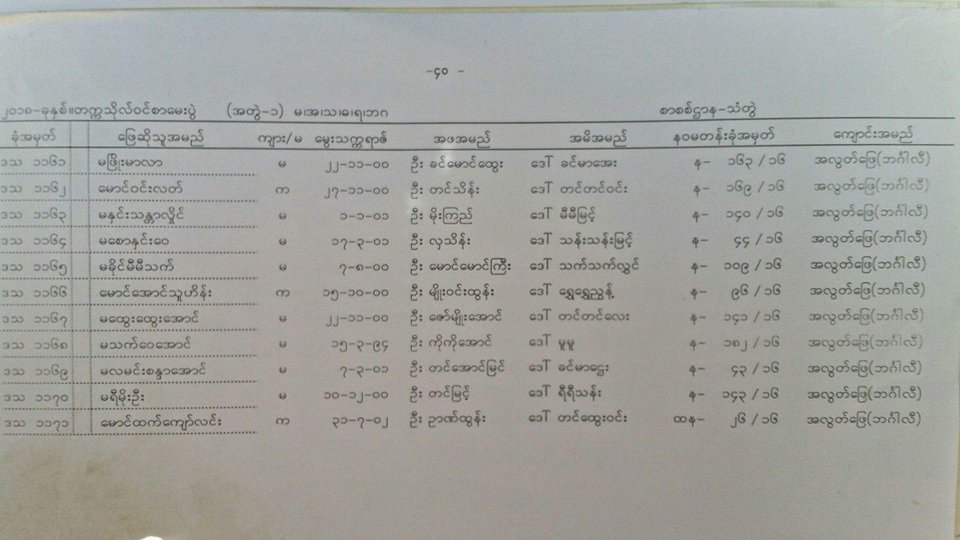Some parents have condemned what they called institutionalised discrimination in Thandwe Township, Rakhine State, where Muslim students were distinguished from their non-Muslim peers and labelled “Bengali” on a document laying out seating arrangements for upcoming matriculation examinations.
The document listing students eligible to sit for the tests was released on 19 February.
“Beside the names of the students, the word ‘Bengali’ was seen written on the exam registration book and on the list announcing the assigned schools where the examinations are scheduled as well,” Aye Aye Lwin, a parent of one of the students, told DVB.
“When we met with district and township education administrators, they denied that they were involved in this. We were told that the Rakhine State education administrator’s office issued the document. We are not Bengalis. It is such an outrageous act by the Education Department to discriminate against the students.”
“Don’t the president or the state counsellor know about such discriminatory practice?” Nyan Yee Phyo, another parent, told DVB. “The education minister has no idea that this is happening here? Such a practice shatters the morale of students.”
Sein Htun Hla, deputy director of the Rakhine State education administrator’s office, told DVB: “When we reported the list of students to the government, we categorised them into different [racial] groups.”
“Now, the seating arrangements have been changed; the students will not be seated in a separate room,” Sein Htun Hla added.
“The Department of Myanmar Board of Examinations has sent a new list to us,” Saw Win, the Thandwe Township education administrator, told DVB. “No races of the students were mentioned in the new list. The students will not be separated from other [non-Muslim] students.”
Matriculation exams for the 2017-18 academic year are scheduled to take place from 7-16 March.
[related]
Thandwe, in southern Rakhine State, is home to a substantial population of Kaman Muslims, a group that is one of 135 officially recognised ethnicities in Burma. Rohingya Muslims, predominantly and historically residing in northern Rakhine State, are not recognised on the list of 135, and the largely stateless minority group has faced decades of discrimination. In Burma, Rohingya are commonly referred to as “Bengalis,” implying that they are illegal interlopers from Bangladesh.
Nearly 700,000 Rohingya have fled Rakhine State to Bangladesh since late August, the result of a Burmese military counter-insurgency operation that the UN human rights chief has called a “textbook example of ethnic cleansing.” In response to coordinated attacks by Rohingya insurgents on 25 August, the military insists its efforts are lawful, rejecting accusations that security personnel have committed grave human rights abuses.



